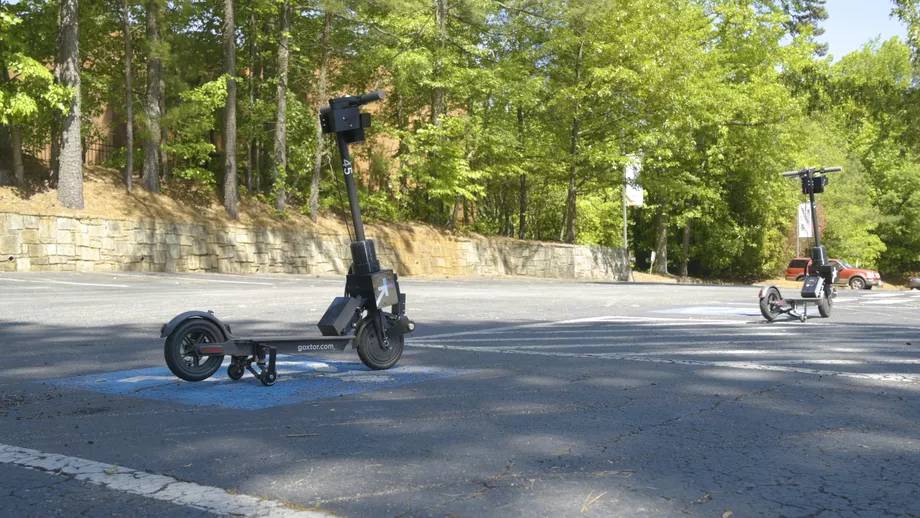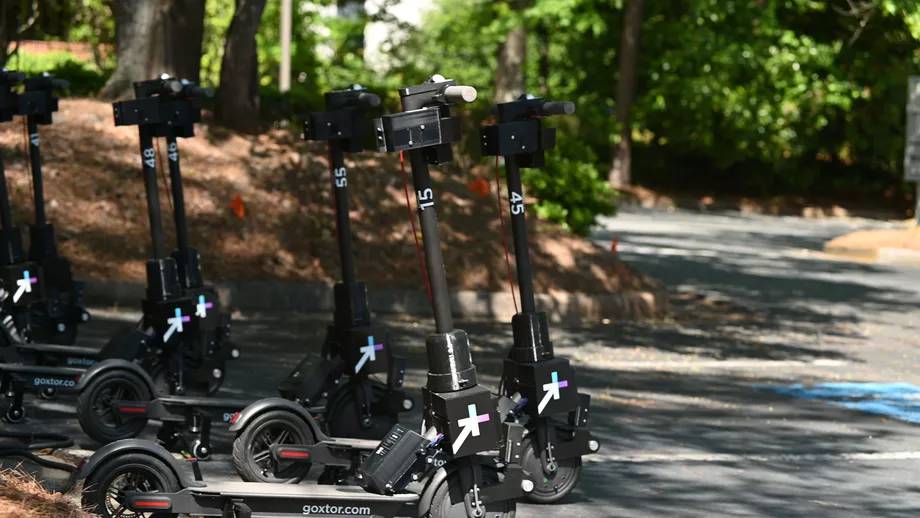These remote-controlled electric scooters aren’t for people with trust issues
100 teleoperated scooters are rolling out to Atlanta, Georgia

Imagine if an electric scooter could turn up at your door, and then safely guide you to your destination. All you have to do is step on, and put your faith in the hands of a remote employee who is located 1,700 miles away. What could go wrong?
This week, that very specific scenario will become a reality in Atlanta, Georgia, where 100 teleoperated electric scooters are rolling out for commercial use for the first time in the US. They’re not as sleek and simplistic as most electric scooters on the market, due in part to the extra tech needed to add a camera, monitor and some reassuring stabilizers. But that’s because they’re being controlled by a team of remote employees.
A group of teleoperators watch a live feed from the scooter’s camera along with other data, and use Xbox controllers to move the scooter around (let’s hope they don’t suffer from stick drift). The electric scooters can be driven to different locations on demand, so expect to see a lot of human-free vehicles driving through Peachtree Corners business park in the north of Atlanta soon.
- The best electric scooters 2020: make commuting fast and fun
- Electric scooters: your complete guide
- Would you swap your car for an electric scooter?
The remote-controlled scooter is backed by a trio of companies: Go X, Tortoise and Curiosity Labs, each of which have the required expertise to make it work.
Speaking to The Verge, Tortoise CEO Dmitry Shevelenko believes that customers will enjoy the convenience of the new scooters. “You don’t have to just be lucky that there will be a scooter that’s within walking distance of your house in the morning. You can actually request it to come to you and wait at home till it does.”
Riding high

One of the biggest advantages of remote-controlled electric scooters is that they solve the issues around what happens when everyone goes home. Previously, independent contractors would be called in to gather up the scooters every night for charging, rebalancing and to stop them from being damaged.
Riders have also struggled to track a scooter down during the day, as they’ll often get grouped up in a certain area. With the ability to move the scooters wherever there is demand, or to one location for pick-up or maintenance, it could solve a lot of potential headaches.
Sign up for breaking news, reviews, opinion, top tech deals, and more.
Shevelenko is confident that, despite shared scooter services often losing money, teleoperation can overcome this long-standing issue. “There’s a lot of juice to be squeezed,” said Shevelenko, who cited an MIT study which found that scooter operators can get 10 times more utilization by rebalancing its fleet throughout the day.
It’s not too much of a stretch to think that soon self-driving scooters will be the next logical step, with remote functionality in case anything goes haywire. Either way, we hope the people of Atlanta are in for a smooth ride.
- Learn the law – are electric scooters legal where you live?

Adam was formerly TRG's Hardware Editor. A law graduate with an exceptional track record in content creation and online engagement, Adam has penned scintillating copy for various technology sites and also established his very own award-nominated video games website. He’s previously worked at Nintendo of Europe as a Content Marketing Editor and once played Halo 5: Guardians for over 51 hours for charity. He is now an editor at The Shortcut.